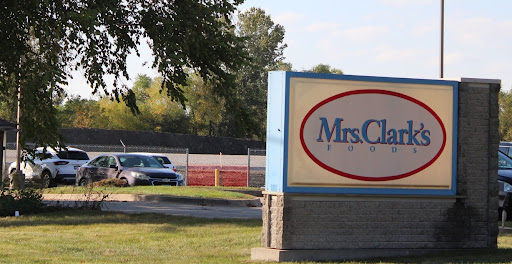Takeaways from our education Power Breakfast

JOE GARDYASZ Feb 17, 2016 | 8:51 pm
4 min read time
891 wordsAll Latest News, Business Record Insider, EducationWhat can Iowa do to regain its leadership position in the nation in education to best prepare students for life and challenging careers?
Four Iowa education leaders sat down this morning to discuss K-12 education at the Business Record Power Breakfast held at the Hilton Garden Inn in Urbandale.
While Iowa faces many challenges in its education system, it has the vital element of talented educators who are willing to try new approaches to better prepare young people, the panelists said. Another important aspect, the panelists agreed, is that more participation from the business community will help to make the education system more relevant for students, whether they’re headed to college or a technical field or trade.
Below are some of the insights I gleaned from the panel discussion:
Literacy challenge:
Foundational skills, particularly literacy skills, need attention, Iowa Department of Educatoin Director Ryan Wise said. One-fourth of Iowa third-graders are not reading at a proficient level. “We need to do more early on as a state to make sure students have the foundational skills in place,” he said.
Stagnant Iowa:
Mark Jacobs, founder of Reaching Higher Iowa, said the bad news is that Iowa’s education system is stagnant when it comes to overall innovation and improvement, but the good news is that there are many good examples in other states and from outstanding school districts to draw from.
Student experiences:
From a business perspective, said Mary Bontrager, executive vice president of the Greater Des Moines Partnership, the biggest challenge is making sure that students’ experiences have relevance to their career opportunities. “I think we have tremendous opportunities for the business community to be a better partner with education,” she said.
Changing demographics:
Changing demographics are also a challenge, Waukee Superintendent Dave Wilkerson said. For instance, one-third of Des Moines students are English language learners whose first language is not English.
How do we measure performance?
The panelists also commented on the lack of alignment between the Iowa Test of Basic Skills now administered to students and the state’s core curriculum requirements. Wilkerson noted that there is a widely held misperception that test scores among Iowa students have declined, but what’s actually happening is that test scores in Iowa have remained stagnant while scores in other states have improved.
A new assessment tool:
Legislation for a new statewide assessment test known as the Smarter Balanced Assessment is under review by the Iowa Legislature in a process known as a session delay. (The Legislative Rules Committee turned the bill back to the Legislature for review.) If the Legislature does not act this session, the existing legislation would become effective in the 2017-2018 school year. However, Jacobs said he is concerned because the current testing company, Iowa City-based ACT Inc., has hired a lobbyist and may seek to overturn the legislation. He urged the audience to let their legislators know they support the Smarter Balanced test.
An idea on teacher training:
On the subject of teacher training, Wilkerson suggested that tweaking the teacher recertification process that’s required every five years could help address needed skills. He suggested that subjects such as improving literacy in the schools need to be addressed; why not require a high-quality course in literacy? Currently, teachers are free to choose from a wide variety of courses that may or may not be related to their areas, he said.
How Iowa teacher pay stacks up:
Regarding teacher pay, Jacobs observed that pay levels in Iowa are roughly middle of the pack. “If we’re going to be top-performing, we can’t be paying middle-of-the-pack salaries,” he said. Jacobs quickly added that putting more money into education is just one aspect of the equation, and that some of the top-performing states in the country are not necessarily the highest-paying.
How funding is affecting Waukee:
On the topic of school funding, Wilkerson said his district, one of the largest and fastest-growing in the state, has had to cut $1.2 million in funding, “and we’re not cutting around the edges anymore,” he said. It’s particularly difficult to run a district when the education budget from the previous year has not yet been approved, he said: “For me, it’s just urging our legislators to follow the law.”
How businesses can partner with schools:
Speaking about how to get involved in the schools, Bontrager suggested that businesses should open their doors to students for job shadowing. “And partner with your school districts and give them real-world problems they can incorporate into project-based learning,” she said. As another step, businesses should incorporate schools into their volunteer policies the same way that many organizations allow employees to take a day to volunteer for other nonprofits, Wilkerson said. “It would be wonderful if businesses would give a day for employees to go out and read to children at the schools,” he said. And businesses should not overlook that many state task forces that are formed to seek input from the community, Wise said: “So look for opportunities to join the task forces to be part of the conversation.”
Here are other related Business Record articles about K-12 education:
$1.9 million raised to fund summer reading pilot study >>>










